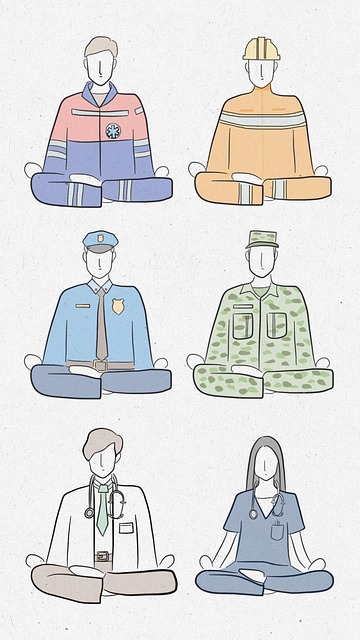Lone Tree Mindfulness Therapy offers vital coping skills for navigating life's challenges and maintaining mental well-being in a fast-paced world, emphasizing techniques like Social Skills Training, Risk Management Planning, and mindfulness practices to promote emotional regulation and prevent burnout. By cultivating compassion, engaging in physical activities, and focusing on present-moment awareness, this therapy enhances resilience, reduces anxiety and depression, and fosters healthier relationships at both individual and community levels.
Coping skills are essential tools for navigating life’s challenges and maintaining mental well-being. This article explores the significance of these skills, providing insights into how they can buffer against stress and adversity. We delve into effective strategies for developing robust coping mechanisms, emphasizing the role of mindfulness practices. Specifically, Lone Tree Mindfulness Therapy emerges as a powerful approach, guiding individuals to enhance their emotional resilience and navigate life’s twists and turns with greater ease.
- Understanding Coping Skills and Their Significance in Mental Well-being
- Strategies for Developing Effective Coping Mechanisms
- The Role of Lone Tree Mindfulness Therapy in Enhancing Coping Skills
Understanding Coping Skills and Their Significance in Mental Well-being

Coping skills are the strategies we use to navigate life’s challenges and maintain mental well-being. They play a pivotal role in managing stress, regulating emotions, and fostering resilience. Effective coping mechanisms enable individuals to adapt to difficult situations without succumbing to adverse effects on their mental health. At Lone Tree Mindfulness Therapy, we understand that developing robust coping skills is essential for overall emotional regulation.
In today’s fast-paced world, where stress and anxiety are prevalent, equipping ourselves with healthy coping strategies is more crucial than ever. Social Skills Training and Risk Management Planning for Mental Health Professionals can significantly contribute to an individual’s ability to cope. By teaching emotional regulation techniques, these approaches empower people to handle challenging circumstances, promote positive mental health, and prevent the escalation of issues that could lead to more severe psychological distress.
Strategies for Developing Effective Coping Mechanisms

Developing effective coping mechanisms is a crucial aspect of maintaining mental well-being and preventing burnout. Lone Tree Mindfulness Therapy offers several strategies to enhance one’s ability to navigate life’s challenges. One key approach is cultivating compassion towards oneself and others, which can be fostered through various practices such as meditation and mindful self-talk. By promoting self-acceptance and empathy, individuals can better manage stress and difficult emotions.
Additionally, Lone Tree Mindfulness Therapy encourages the exploration of different coping skills like engaging in physical activity, practicing deep breathing exercises, or pursuing hobbies that bring joy. These activities serve as healthy distractions from overwhelming thoughts and feelings, providing a sense of calm and perspective. Integrating such practices into daily routines can significantly improve one’s resilience and overall coping abilities, ultimately contributing to a more balanced and fulfilling life.
The Role of Lone Tree Mindfulness Therapy in Enhancing Coping Skills

Lone Tree Mindfulness Therapy offers a powerful tool for enhancing coping skills, especially in today’s fast-paced and often stressful world. This therapeutic approach focuses on training individuals to be fully present in the moment, observing their thoughts and emotions without judgment. By cultivating mindfulness, individuals can develop a deeper understanding of themselves and learn effective strategies to manage challenging situations. Regular practice helps in reducing stress, anxiety, and depression, thereby improving overall mental wellness.
Incorporating Lone Tree Mindfulness Therapy into public awareness campaigns and empathy-building strategies can have profound effects on communities. It enables folks to navigate life’s complexities with resilience and grace. This therapy goes beyond mere relaxation; it empowers individuals to become active participants in their emotional well-being, fostering a sense of control and self-awareness that translates into better decision-making and enhanced relationships.
Coping skills are essential tools for navigating life’s challenges and maintaining mental well-being. By understanding the significance of these skills, individuals can actively work on developing effective mechanisms. The article has explored various strategies and highlighted the beneficial role of Lone Tree Mindfulness Therapy in enhancing coping abilities. Incorporating mindfulness techniques into one’s routine can significantly improve an individual’s resilience and overall mental health. Through dedicated practice, anyone can cultivate a robust coping toolkit, fostering a sense of calm and empowerment to face life’s curveballs.














